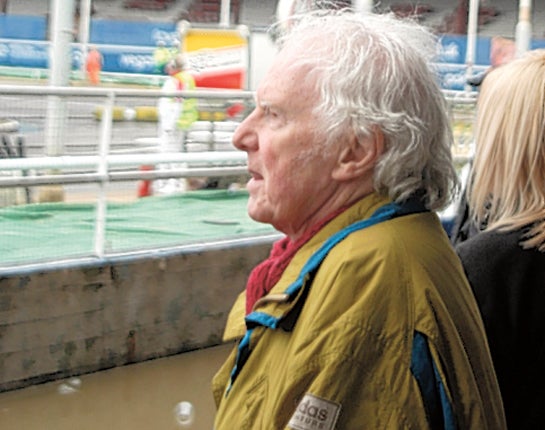The Week In Radio: Won over by the fast and furious life of Brian

Your support helps us to tell the story
From reproductive rights to climate change to Big Tech, The Independent is on the ground when the story is developing. Whether it's investigating the financials of Elon Musk's pro-Trump PAC or producing our latest documentary, 'The A Word', which shines a light on the American women fighting for reproductive rights, we know how important it is to parse out the facts from the messaging.
At such a critical moment in US history, we need reporters on the ground. Your donation allows us to keep sending journalists to speak to both sides of the story.
The Independent is trusted by Americans across the entire political spectrum. And unlike many other quality news outlets, we choose not to lock Americans out of our reporting and analysis with paywalls. We believe quality journalism should be available to everyone, paid for by those who can afford it.
Your support makes all the difference.There's a famous Monty Python sketch called Philosophers' Football, in which Greece, represented by Socrates, Archimedes and Plato take on Germany, with Hegel, Kant, Marx and Nietzsche. High culture meets low. It's brilliant. Anyway, I was reminded irresistibly of this when listening to the distinguished art critic Brian Sewell on his passion for stock-car racing. The BBC has a habit, let's call it Stephen Fry syndrome, whereby once they've found a presenter who can do something, they want them to do everything, witness Mark Lawson and Andrew Marr. Good at politics? Here's a history series. A doctor? Why not take on some wildlife, and archaeology while you're at it. Famous for fashion? What about a book programme. It's as though we're suffering some worldwide presenter shortage and all those bright young things emerging from media courses and YouTube simply needn't bother. It's a conundrum. Programme-makers complain that without a big name, their pitch won't get commissioned. Journalists need to prove their versatility. Older presenters cry ageism if they are sidelined. Yet there are times when stretching the talent is justified and Stock Car Sewell was one of them.
While the idea of Brian Sewell enthusing over stock cars is as weird as Jeremy Clarkson on, say, Poussin, Stock Car Sewell was a success because Brian did not modify his aesthetic judgements one jot when appreciating a procession of rusty hotrods and bangers. "When you get the exhaust spitting flames out, it does seem like a Turner sunset in November," he enunciated in that uniquely fluting delivery that is straight out of Oscar Wilde. "It has a kind of bright vulgarity in terms of colour." He was arch. "The smell of the exhaust is exactly like being exposed to a vast quantity of evaporating gin." He was knowing, describing a fellow banger aficionado as "Virgil to my Dante if you will". And though I would a hundred times rather listen to him on old masters than old bangers, his explanation of how he came to be spending nights at Wimbledon stadium was beguiling. "Like most men, I've never grown up and I've always been in love with cars. I'm fascinated by how beautiful and aggressive and wonderful they are. And how nasty. They evince every characteristic of the human male in my view. Pure aggression."
An equally inimitable presenter is Andy Kershaw, who after a troubled interlude, will be coming back to Radio 3 next year for a series called Music Planet. I've missed Kershaw, a complete one-off, whose delivery is in every way as distinctive as Brian Sewell's. He is currently travelling round Africa and in a report for From Our Own Correspondent, he visited the site in Kinshasa of the historic Rumble in the Jungle meeting between Muhammad Ali and George Foreman. It was a slight, but elegiac encounter, the kind in which FOOC absolutely specialises. He found the stadium crumbling and overgrown: "It might sound daft to say I felt sorry for a stadium, but I did," and his delight on discovering Ali's original dressing room was tempered by the fact that it is now derelict and occupied by a family of squatters.
The idea of human life carrying on in the rubble of history was also the keynote of Blitz Week on Radio 4, which took presenters back to their home towns to mark the effects of the bombing 70 years ago. The most affecting was Angela Rippon's Plymouth, the only major target from where children were not evacuated. Schools, being schools, decided the answer was to ignore the disruption and carry on with times tables. Her most poignant discovery was a set of school log books, where alongside the absent in the morning registers, some children's names were simply logged as "deceased". A better example of stiff upper lip it would be hard to find.
Join our commenting forum
Join thought-provoking conversations, follow other Independent readers and see their replies
33Comments